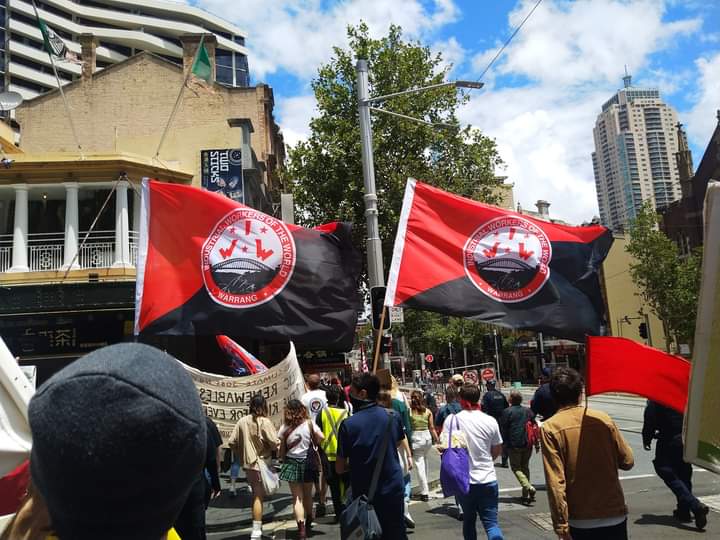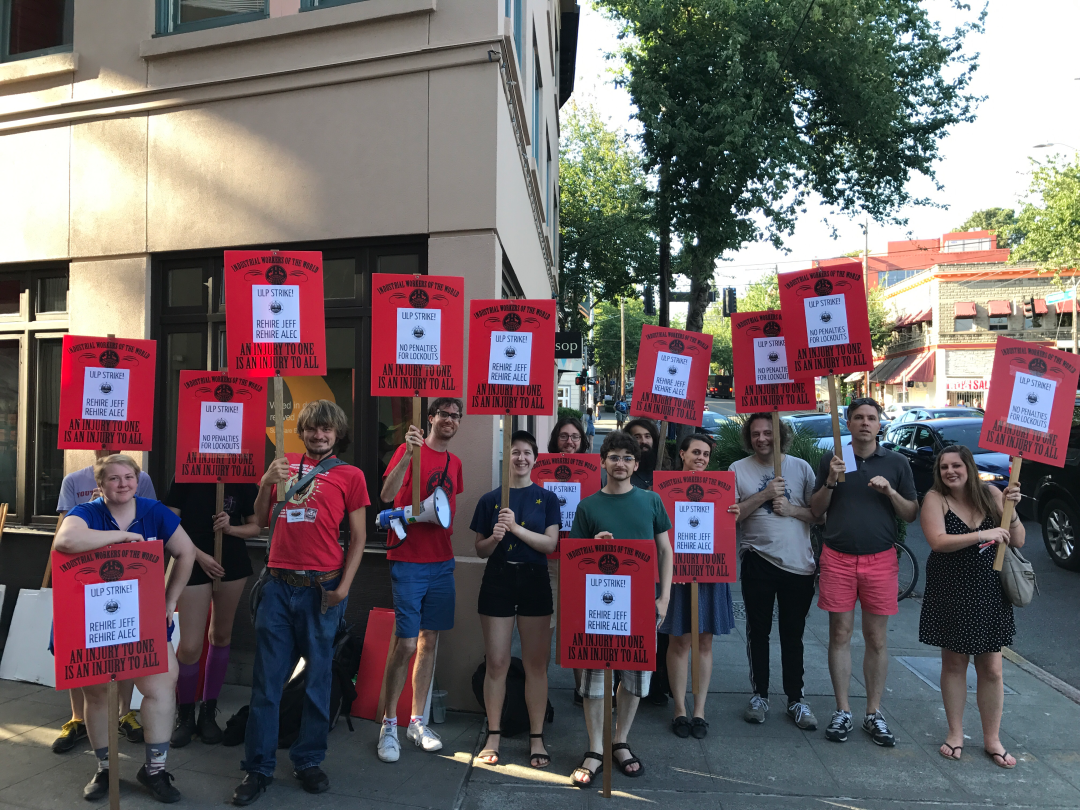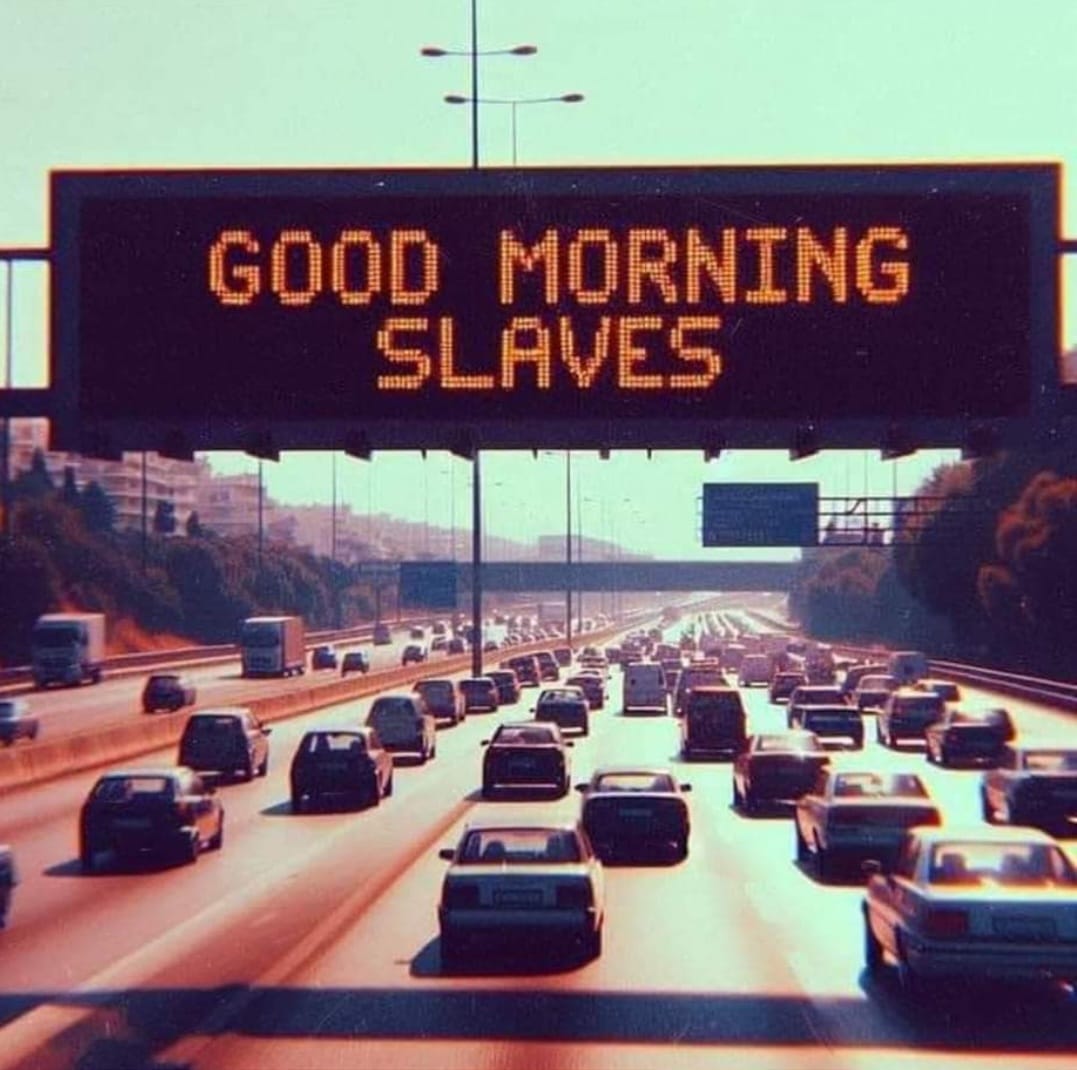A template for the use in Radical Militant Organising, keeping in mind the general principles of solidarity, effectiveness and fucking shit up.
[Text Wrapping Break]“I hope you live without the need to dominate, and without the need to be dominated. I hope you are never victims, but I hope you have no power over other people. And when you fall, and are defeated, and in pain, and in the dark, then I hope you will remember that darkness is your country, where you live, where no wars are fought and no wars are won, but where the future is. Our roots are in the dark, the earth is our country. Why did we look up for blessing-instead of around, and down? What hope we have lies there, not in the sky full of orbiting spy-eyes and weaponry, but in the earth, we have looked down upon. Not from above, but from below. Not in the light but blinds, but in the dark that nourishes, where human beings grow human souls”
Ursula K. Le Guin
An injury to one is an injury to all.
There is no subclause to this statement. There is no unless a or b occurs, no if this or that excuse, or buts in a footnote leading you to page 23, or maybes.
No judgement. No expectations.
Militant Love
Resisting systems of control and punishment cannot be achieved by practicing manipulation and control.
The whole point of organising is to dismantle systems of manipulation and control, not to duplicate them. The moment we become the reason defiance and resistance is needed within any organisation or movement nominally devoted to collective defiance and resistance, is the moment we reproduce the conditions of our own defeat. The moment we become someone that people are answerable to, or that people have to ask permission from to take action, is the moment we must dismantle ourselves and empower and reassure members that this is not the case.
This requires an ending to gaslighting and manipulation.
Gaslighting phrases versus respectful phrases.
- Gaslighting: Dismisses emotions- ‘You’re overreacting.’
Respectful: Acknowledges feelings- ‘I can see this is upsetting you.’
- Gaslighting: Denies reality- ‘That never happened.’
Respectful: Invites perspective- ‘I remember it differently, can we talk?’
- Gaslighting: Labels you paranoid ‘You’re just being paranoid.’
Respectful: Validates concerns. ‘What is making you feel uneasy?’
- Gaslighting: Invalidates perception. ‘You’re imagining things’
Respectful: Stays open ‘I didn’t notice that, but I want to understand.’
- Gaslighting: Criticises sensitivity ‘You’re too sensitive.’
Respectful: Shows empathy. ‘Can you tell me what bothered you?’
- Gaslighting: Attacks sanity. ‘You’re crazy’
Respectful: Offers support. ‘I’m listening, even if I don’t understand yet.’
- Gaslighting: Blames ‘You’re always twisting things.’
Respectful: Clarifies. ‘Let’s slow down and get on the same page.’
- Gaslighting: Minimises. ‘No one else has a problem
Respectful. Personalises. ‘How is this effecting you.’
Meeting procedure.
A non-hierarchical meeting minutes template focuses on equal participation and collaborative decision-making. It typically includes basic meeting information, an agenda, key discussion points, decisions made, and action items, but prioritizes concise, action-oriented recording over detailed discussions.
Here’s a breakdown of key elements for a non-hierarchical meeting minutes template:
1. Meeting Information:
- Date and Time: Clearly state when the meeting occurred.
- Location: Indicate if in-person or virtual, and specify the venue or platform.
- Attendees: List all participants, including those present in-person and online.
- Absentees: Note any members who could not attend.
- Guests: Document any non-members present.
2. Agenda:
- Agenda Items: List the topics or decision points discussed.
- Key Discussions: Briefly summarize the main points raised under each agenda item.
- Decisions Made: Clearly record the outcomes of each discussion, including any consensus or vote tallies.
- Action Items: Outline the next steps required, including who is responsible and the due date.
3. Non-Hierarchical Focus:
- Equal Participation: Ensure that all voices are heard and contributions are acknowledged.
- Concise Recording: Focus on summarizing key points and decisions rather than detailed transcripts.
- Collaborative Environment: Create a space where individuals feel comfortable sharing their ideas and perspectives.
Consensus decision making is based on the premise that everyone’s voice is worth hearing and that all concerns that come from a place of integrity are valid. If a proposal is deeply troubling to even one person, that concern is respected; if it is ignored, the group is likely to make a mistake.
If consensus cannot be achieved within a meeting framework, then the decision must be tabled for next meeting. Consensus is harder to reach if there are entryists present, that is group members who seek to move the group away from their stated goals and aims towards other goals and aims, which takes focus, energy and enthusiasm away from the group.
Resisting entryism
Politicians like thriving social movements; they see them as fertile soil for their own ambitions. Typically, trying to control healthy movements means destroying what makes them healthy. They end up instead with a ghetto that, while populated, becomes codependent with ‘prominent militants’ (not leaders), exclusive and generally toxic.
Principles before Personalities. This is based on the alcoholics anonymous understanding that if a comrade needs help and asks for it, you help them no matter what personal feelings are involved in the relationship.
Principles before Personalities, as far as organisations are understood, are based upon the belief that everyone has a role to play, and that all roles are honoured and respected. People get stronger when groups emphasise and respect an individual’s strengths when working towards a common aim, and people support each other and engage in mutual positive regard, non-judgemental and respectful communication
Disrespectful words destroy movements.
If I was the thought police, I’d just put a plant in every left-wing group in existence and get them to make accusations against anyone getting anything done. Any accusations that occur from without the organisation are not to be dealt by from within the organisation, and vice versa. Accusations that occur from within the organisation need to be referred to mediation and need only to involve those parties.
The practice of joy.
‘The practice of seeing each other and appreciating each-other and being grounded in hope joy and gratitude to move forward’ (wearedissenters, 2024)
The same joy and gratitude and appreciation for all workers within the group or from other groups. It is important to have the ability to work with already well -established communities that have fought oppression to learn and grow from their experiences. This is mutualism in between groups.
The opposite of love is indifference. One of the biggest indifferences that happens within organisation is indifference to a person’s manipulation or controlling behaviours, in other words, leadership. Indifference to leadership leads to a person establishing themselves as more important than other people, and it takes a lot of fierce love and vigilance to never allow this to occur.
The value of diversity in each unique and beautiful person is to be cherished, instead of being devalued in an attempt to achieve conformity within an organisation. The charge of non -compliance requires the false belief that compliance that the person or the organisation has all the information required to make that assessment. Firstly, this is a judgement. Secondly, this is gaslighting. Thirdly, this goes against the principles of unconditional positive regard. It is important to rebel against this belief at all times.
Reward and Punishment, the opposite of Joy
Reward and punishment and basic behaviouralism comes from the world view that human behaviour has no inherent value unless it is controlled. Punishment from the state consists of physical punishment and the withholding of resources necessary for survival or pleasure. Rewards are given to people who are classed by the state as having the status worthy of the reward, and status is determined by wealth and access to the decision-making process, which in itself is determined by class. Punishment from within organisations consists of humiliation and the erosion of a person’s value and their experience of self.
In Discipline and Punish by Foucault, the 5 systems of punishment are as follows.
- Judgement that relates to an imposed standard. This standard is usually based on beauty and capital. Groups must be open minded and celebrate people’s inherent beauty and gifts and ignore the standards imposed by the capitalist system
- Punishment differentiates individuals from each other. Individuality is replaced by false individuation, which is a loss of self, and a loss of natural instincts. Individuals’ natural instincts are important and to be listened to and encouraged, along with the self and celebrating people for who they are, regardless of pre conceived notions of corporate productivity.
- Punishment serves to measure and place abilities, levels and nature into a hierarchical system The hierarchy gives subdivisions of value as a means of control and to give the illusion of individuation. It is important that equality and non-hierarchical decision making occur and people be respected.
- Punishment introduces the value giving measure by which conformity must be achieved. Non conformity is a must for a non-stagnant group dynamic. Up the anti, always.
- Each hierarchy has a cutoff point, after which a person is cut off from the group and forced out. This is called the ‘external frontier of the abnormal’. This exists to make sure that everyone works harder as to keep a safe cushion between ourselves and the pit of worthlessness. It is important that no one gets discarded or cut of or isolated from a group. Everyone must always be welcomed.
The practice of peace.
In instances of conflict, the organisation sticks to issues that occur within the organizational space. If you want to do politics then don’t.
Any conflict that occurs outside the organizational space will not be dealt with by the organisation.
There will be full support of all members within the organisation, unless physical harm is caused. All bullying will end with an apology from the bully. All defamation on any media platforms will result in an immediate show cause. People don’t want to know the personal business of people within a group, and if they do then that is suspicious.
We will not apologize for members behaviour, so don’t bother asking. We will make amends should our organisation cause harm through our actions as an organisation.
Social media will not be used for conflict resolution or interpersonal issues. All interpersonal conflicts will be resolved on Tik Tok through interpretive dance.
Every group will itself be merely a part of national and international movements and will work alongside other organisations towards a similar aim.
If you are going to smash the plates, then let’s all smash the plates. And let’s make sure to do it loudly.
Bibliography
Antonio, Robert J. “The processual dimension of degradation ceremonies: the Chicago Conspiracy trial: success or failure?” The British Journal of Sociology 23, no. 3 (1972): 287-297.
Cohen, Stanley. Folk devils and moral panics. Routledge, 2011.
Debney, Ben, ‘The Leninist barrier to socialist reconstruction,’ 1 May 2019, via https://bendebney.substack.com/p/the-leninist-barrier-to-socialist, accessed 21 July 2024.
Dudai, Ron. “Entryism, mimicry and victimhood work: The adoption of human rights discourse by right-wing groups in Israel.” The s 21, no. 7 (2017): 866-888.
Enns, Diane. The violence of victimhood. Penn State Press, 2015.
Federici, Silvia, A Feminist Critique of Marx, n.d., via https://classautonomy.info/a-feminist-critique-of-marx-by-silvia-federici/, accessed 21 July 2024.
Grande, Sandy. “Refusing the settler society of the spectacle.” Handbook of Indigenous education (2018): 1-27.
Hall, Stuart, Chas Critcher, Tony Jefferson, John Clarke, and Brian Roberts. Policing the crisis: Mugging, the state and law and order. Bloomsbury Publishing, 2017.
Ince, Onur Ulas. Colonial capitalism and the dilemmas of liberalism. Oxford University Press, 2018.
Land, Clare. Decolonizing solidarity: Dilemmas and directions for supporters of indigenous struggles. Bloomsbury Publishing, 2015.
Liu, Catherine. Virtue hoarders: The case against the professional managerial class. U of Minnesota Press, 2021.
Morris, Katie Boudreau. “Decolonizing solidarity: cultivating relationships of discomfort.” In Pathways of Settler Decolonization, pp. 62-79. Routledge, 2020.
Ribot, Jesse. “Violent silence: framing out social causes of climate-related crises.” In Climate Change and Critical Agrarian Studies, pp. 60-89. Routledge, 2023.
Busk, Bree & Romina Akemi, Breaking the Waves Subtitle: Challenging the Liberal Tendency within Anarchist Feminism, 2016, via https://theanarchistlibrary.org/library/romina-akemi-bree-busk-breaking-the-waves, accessed 21 July 2024.
Schulman, Sarah. Conflict is not abuse: Overstating harm, community responsibility, and the duty of repair. arsenal pulp press, 2016.
Tornel, Carlos. “Energy justice beyond identity: Planting anarchist seeds towards total liberation.” Progress in Human Geography 47, no. 2 (2023): 351-352.
Tornel, Carlos and Alexander Dunlap. “Pluralizing energy justice? Towards cultivating an unruly, autonomous and insurrectionary research agenda.” Energy Research & Social Science 103 (2023): 103217.
Tyler, Imogen. Stigma: The Machinery of Inequality. Bloomsbury 2021.
Whitman, James Q. “What is wrong with inflicting shame sanctions.” Yale Law Journal 107; 1997: 1055.
Wildermuth, Rhyd. Here Be Monsters: How to Fight Capitalism Instead of Each Other. Watkins Media Limited, 2023.
Ziq, Trotskyist Entryism and Left Unity, via https://classautonomy.info/entryism-and-left-unity/, accessed 21 July 2024.





